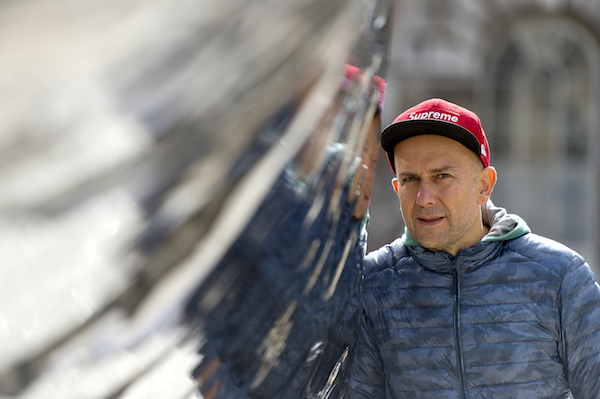
Photo: Ben Pruchnie/Getty Images.
The artist Marc Quinn is no longer represented by British powerhouse White Cube.
The departure has been confirmed to artnet News by a gallery spokesperson: “We can confirm that White Cube’s relationship with Marc Quinn has drawn to a close. We would like to take this opportunity to wish him every continued success with his future projects,” she said. The split is said to have taken place in the last couple of weeks.
However, insiders’ rumors point to the possibility that the departure was a one-sided decision made by the blue chip gallery, and that the poor critical reception of the artist’s work in the last few years has played a crucial role in it.
Jay Jopling
Photo: J Grassi/Patrick McMullan
Quinn’s departure comes a shock to many, as he has been closely associated with, and represented by, Jay Jopling’s gallery since it first opened in 1993. In fact, according to The Art Newspaper, Quinn is the first artist that Jopling ever worked with. Before launching White Cube, the dealer-to-be organized and curated an exhibition of Quinn’s work at London’s Grob Gallery.
From that moment onwards, the artist went on to create a number of artworks of major significance to the recent history of the YBAs—so closely tied to Jopling’s dealing activities—from Self, a self-portrait cast in frozen blood, to the Sphinx series, which depict the super model Kate Moss in a series of yoga-inspired contortions in painted bronze and gold.
Marc Quinn, Sphinx (Fortuna) Pink (2006)
Photo: Courtesy Leman Art.
No one could have anticipated this outcome when Quinn launched what would be his last exhibition at White Cube last July. Entitled “The Toxic Sublime,” the show explored nature, climate change, and human behavior through sculptures of large-scale cast of seashells and spray paintings on canvas and aluminum.
Quinn works with other galleries, including Galerie Thaddeus Ropac, but the important support he has received from White Cube over the last 23 years has now come to an end.